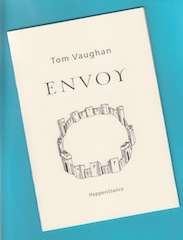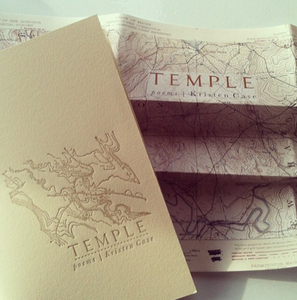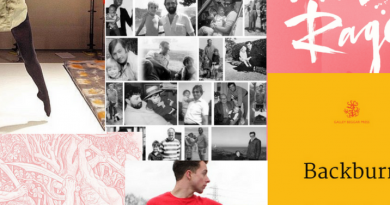Envoy by Tom Vaughan
-Reviewed by Judi Sutherland-
Tom Vaughan is not this poet’s real name, but a pseudonym necessitated by his job in Her Majesty’s Diplomatic Service, where discretion was his trade. I’d be surprised if he gives many readings of his work. What we can deduce from his poems is that he has worked in Washington DC, as well as in some of the most troublesome trouble spots in modern political life: Egypt, Saudi Arabia, Jerusalem, Zimbabwe and Afghanistan feature in these poems.
The opening poem ‘The Empty Quarter’ seems to be a personal statement on his retirement, addressed to his wife, hoping that the two of them will ‘start a journey too long put aside’. One can imagine that a job like Vaughan’s would be all-consuming, and that the price of such a fascinating career is largely paid by the diplomat’s family.
Vaughan inhabits a range of poetic styles. There are quite a few formal poems, neatly rhymed and metred, that present a voice somewhere between John Betjeman and Wendy Cope. This style works best when deeply ironic. There are even touches of Emily Dickinson’s philosophical style, for example, in ‘Appropriate’, where he picks a neat hole in the language of diplomacy:
Appropriate measures may be used…
appropriate forces sent.
Appropriately you’ll never know
exactly what we meant.
In more serious poems, the full end-rhymes are less successful. In ‘The Muslim Graveyard, Tel Aviv’ the five-line stanzas have a rhyme in the fourth and fifth lines, which gives the poem a glibness it could do without. But he’s back to his mercilessly sardonic self with ‘The Land of the Turtles’ which rattles along like a Victorian monologue; Kipling, or Gilbert and Sullivan, perhaps. I just can’t work out where it is about, but maybe that’s deliberate.
It’s when Vaughan moves away from this whimsical style that the poems become much more powerful, and everything goes a little bit John Le Carré. ‘Instructions’ packs a visceral punch. It begins:
You are to go to some invented land,
master its language, absorb its history,
identify what might go wrong, what might be used,
and buy important people.
There are one or two pieces of jargon I had to look up. ‘Briefing’ asks if there is ‘any Zoë Baird stuff’ which I managed to clarify, and references ‘the Cisneros thing’, which I didn’t, but that’s ok, it gives the reader a feeling of being in with the in-crowd. The more subtly rhyming ‘Baggage Reclaim’ provides a shock – the narrator puts a hypothetical question about what to do if one ‘took the wrong suitcase’ / and found inside a million quid’:
Or if (mistake?) you took the wrong suitcase
and found inside a stack of cash, would you
decide it was your lucky day? Why chasethe crook it must belong to?
Even more intriguingly, in ‘At the King David’, our correspondent witnesses a meeting between Tony Blair and Shimon Perez in Jerusalem, where the specific details ground the incident in reality: ‘I looked out from the sixth floor at the view / of the Old City sparkling like a gun’ he tells us, and it is totally convincing.
There is a wonderful portrait of a work colleague in ‘Out of Africa’, some thoughts on the economics of spying in ‘Pact’, the feeling of being a lame duck at the end of a posting in ‘Leaving Washington’, and the collection ends with a grim elegy to Britain’s involvement in Helmand.
After reading this fascinating collection, the reader is left with the impression that Vaughan’s poems only scratch the surface of a hidden world. I’d love to invite Vaughan (and his long-suffering wife) to dinner, to hear more about what happens in our name at the Foreign & Commonwealth Office. I suspect that ‘Tom Vaughan’ could tell us, but then he’d have to kill us.




